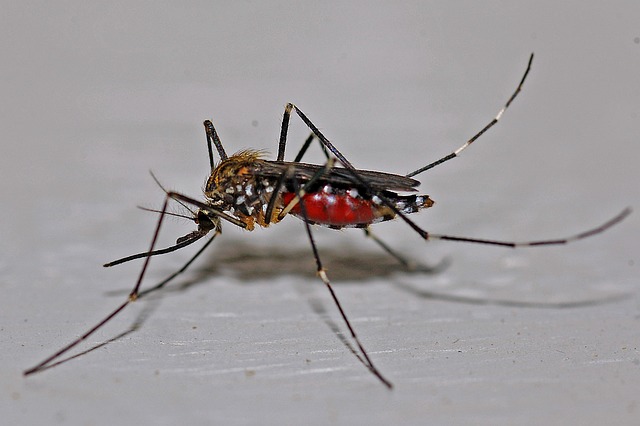Mosquitoes are tiny creatures that can pack a punch with their presence. Understanding their life cycle, particularly the egg-laying stage, can help us manage their populations better. In this blog post, we discuss when and where mosquitoes lay their eggs, shedding light on their preferred conditions and locations. This knowledge is crucial for anyone looking to reduce mosquito numbers, whether in their backyard or on a larger scale.

The Life Cycle of Mosquitoes
Understanding the life cycle of mosquitoes is essential to grasp when and where they lay their eggs. Mosquitoes go through four stages: egg, larva, pupa, and adult. The egg stage is the beginning, and its success depends significantly on the environment.
Stages of Development
- Egg: Laid on water surfaces or damp areas, these eggs can hatch in just a few days if conditions are right.
- Larva: Also known as wrigglers, they live in water, feeding on microorganisms until they develop into pupae.
- Pupa: The pupal stage is a transition phase before they become adults. This stage lasts a few days.
- Adult: Once they emerge, adults are ready to begin the cycle again, with females seeking a blood meal to nourish their eggs.
When Do Mosquitoes Lay Eggs?
Mosquitoes typically lay their eggs during warmer months. Warmer temperatures accelerate their lifecycle, allowing more breeding opportunities. This often coincides with spring and summer. However, in tropical regions, mosquitoes may lay eggs throughout the year due to the consistently warm climate.
Factors Influencing Egg-Laying
Several factors can influence the timing of egg-laying:
- Temperature: Warmer temperatures speed up the development of eggs, which is why mosquitoes are more active in the heat.
- Humidity: High humidity levels provide a conducive environment for mosquitoes to lay eggs.
- Rainfall: Rain creates stagnant water sources, which are ideal for egg-laying. The more rain, the more potential breeding sites.
Where Do Mosquitoes Lay Eggs?
Mosquitoes are quite particular about where they lay their eggs. They prefer environments that provide a safe and nourishing start for their offspring.
Stagnant Water: A Mosquito’s Favorite Spot
The most common places mosquitoes lay their eggs are in stagnant water. This can be any collection of standing water, such as:
- Ponds and Lakes: Natural bodies of water are prime locations.
- Swamps and Marshes: Wetlands offer an abundance of stagnant water.
- Buckets and Containers: Unused containers in backyards can become breeding grounds.
- Clogged Gutters: Blocked gutters can collect rainwater, providing an ideal site.
- Bird Baths: Regularly neglected bird baths can become egg-laying sites.
Other Uncommon Locations
Sometimes, mosquitoes lay eggs in less predictable places:
- Tree Holes: Some species target water collected in tree holes.
- Plant Saucers: The water that collects under plant pots can also serve as a site.
- Old Tires: Discarded tires can trap water, making them suitable for egg-laying.
- Ditches and Depressions: Any spot that collects water after rain can be a potential site.
How Egg-Laying Habits Affect Control Efforts
Understanding these habits is crucial for effective mosquito control. By knowing when and where mosquitoes lay eggs, steps can be taken to reduce breeding sites.
Professional Mosquito Control
Engaging professional mosquito control services can be an effective way to manage mosquito populations. These experts understand mosquito behavior and can target areas where mosquitoes lay eggs, reducing future generations. Their strategies often include identifying potential breeding sites and treating them to prevent egg hatching.
Preventing Mosquito Breeding
Preventing mosquitoes from breeding starts with removing potential egg-laying sites:
- Eliminate Standing Water: Regularly check and empty containers that collect water.
- Maintain Gutters: Ensure gutters are clear and water flows freely.
- Change Water Sources: Refresh water in bird baths and pet bowls frequently.
- Cover Water Storage: Use tight lids on water storage containers to prevent access.
- Fill Tree Holes: Use sand or other materials to fill tree holes that hold water.
- Landscaping Adjustments: Ensure proper drainage in your yard to prevent water accumulation.
The Importance of Mosquito Control
Mosquito control is vital due to the dangers mosquitoes pose, such as spreading diseases like malaria, dengue, and Zika virus. Effective control measures reduce these health risks and ensure safer environments. By eliminating breeding sites and using targeted strategies, we can significantly lower mosquito populations and prevent potential outbreaks.
Transforming Your Outdoor Experience: Managing Mosquito Populations for Health and Comfort
Mosquitoes are more than just pests; their breeding habits can significantly impact our outdoor comfort and health. By understanding when and where these insects lay their eggs, we can take effective measures to control their populations. Simple actions like removing stagnant water and engaging professional mosquito control can make a big difference. Stay vigilant, especially during warmer months, to keep your surroundings mosquito-free. Taking these steps not only improves outdoor enjoyment but also helps in reducing the health risks associated with mosquito-borne diseases.
As summer approaches, don’t let mosquitoes ruin your outdoor fun. Contact Valley Integrated Pest Control today to reclaim your yard from these pesky intruders. Our expert services ensure a mosquito-free environment, enhancing your comfort and protecting your health. Act now for a serene, pest-free summer.





